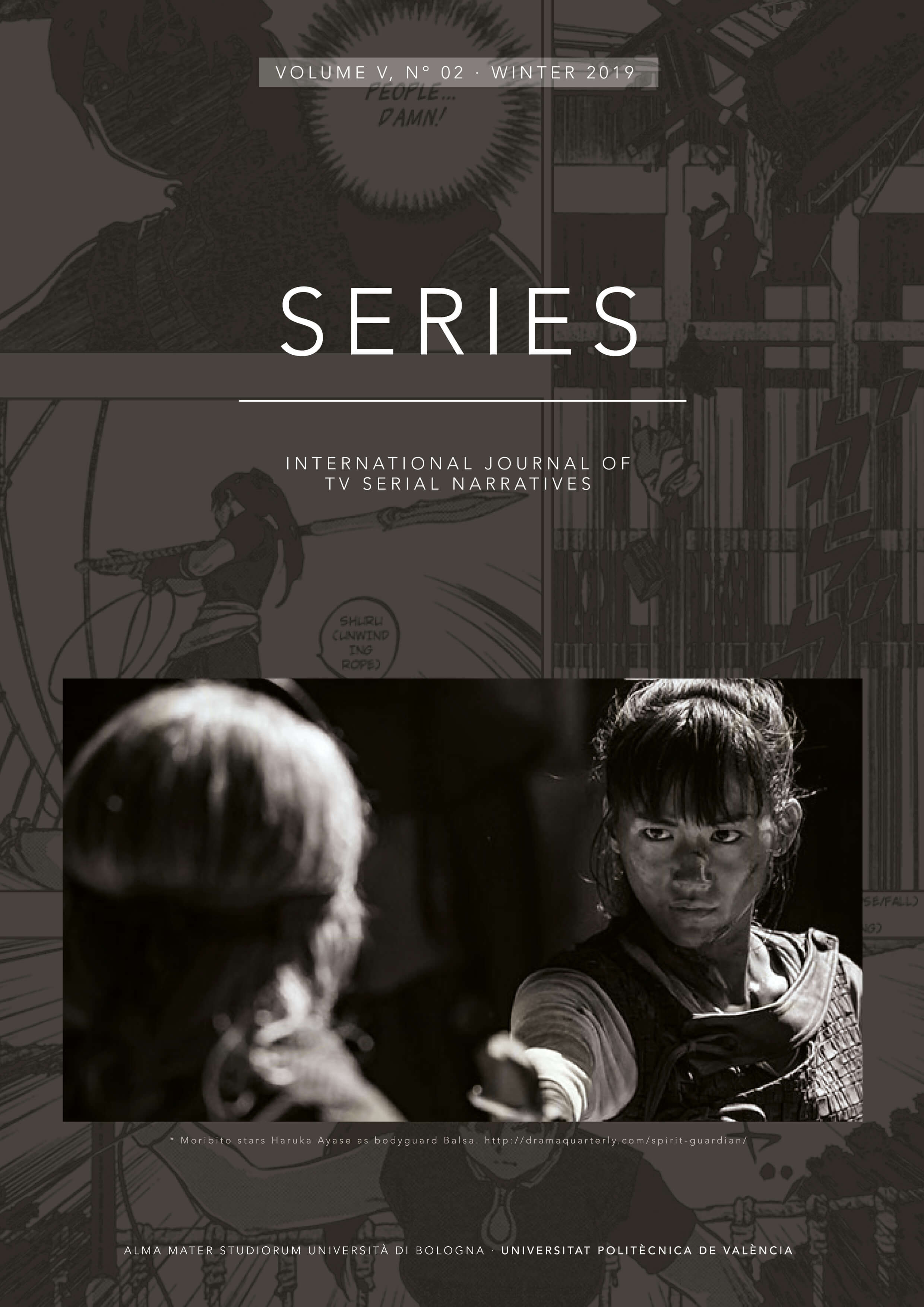Supernatural Serials as Social Critique in Recent South Korean Television
DOI:
https://doi.org/10.6092/issn.2421-454X/9158Keywords:
supernatural serial, cognition and affect, multiple personality, genre blending, script theoryAbstract
South Korean television drama often employs ghost stories as a medium for social critique, as in the series Dokkaebi: The Lonely and Great God (2016-17), Let’s Fight, Ghost (2016) and Oh My Ghost (2015). Blending ghost story with other genres, these series foreground the plight of characters who are either ghosts or young people able to see ghosts. Both are isolated by their liminal condition and the multiple personalities it entails, the ghosts because they cannot communicate with the living and the ghost seers because their uncanny ability has set them apart since childhood. Both lack immediate families, which further isolates them in a society with communal values centred on family. Both thus readily symbolize people marginalized because of gender, social status or restricted economic access, but also serve as a commentary on the disintegration of the family in contemporary South Korea. The viewing audience is positioned to align and empathize with ghost and/or seer in their struggles with lost identity and the quest for justice which will free the ghost from its liminal state, and is thereby implicated in a crisis of subjectivity and prompted to reflect upon its own position in society.
References
Breakey, William R. (2001). “Psychiatry, Spirituality and Religion.” International Review of Psychiatry 13.2: 61-66. https://doi.org/10.1080/09540260120037281.
Choi, Jinhee (2010). The South Korean Film Renaissance: Local Hitmakers, Global Provocateurs. Middletown, CT: Wesleyan University Press.
Greyson, Bruce (2016). “Near-Death Experiences and Spirituality.” Zygon: Journal of Religion & Science 41.2: 393-414. https://doi.org/10.1111/j.1467-9744.2005.00745.x.
Lee, Sung-Ae (2015). “Lost in Liminal Space: Amnesiac and Incognizant Ghosts in Korean Drama.” Mosaic 48.3: 125-40. https://doi.org/10.1353/mos.2015.0040.
Lee, Sung-Ae and John Stephens (2013). “‘The Ghost Remembers Only What It Wants To’: Traumas of Girlhood as a Metonym for the Nation in the South Korean Whispering Corridors (Yeogo Goedam) Series.” In The Nation in Children's Literature: Nations of Childhood, edited by Christopher (Kit) Kelen and Björn Sundmark, 97-110. New York and London: Routledge.
Mittell, Jason (2015). Complex TV: The Poetics of Contemporary Television Storytelling. New York: NYU Press.
Oatley, Keith (2003). “How Cues on the Screen Prompt Emotions in the Mind.” In Psychocinematics: Exploring Cognition at the Movies, edited by Arthur P. Shimamura, 269-84. New York: Oxford University Press.
Parnia, Sam (2014). “Death and Consciousness – An Overview of the Mental and Cognitive Experience of Death.” Annals of the New York Academy of Sciences 1330.1: 75-93. https://doi.org/10.1111/nyas.12582.
Verhagen, Peter (2010). “The Case for More Effective Relationships between Psychiatry, Religion and Spirituality.” Current Opinion in Psychiatry 23.6: 550-55. https://doi.org/10.1097/YCO.0b013e32833d8b04.
Walker, Wayland (2011). “Alterity: Learning Polyvalent Selves, Resisting Disabling Notions of the Self.” New Directions for Adult and Continuing Education 132: 43-52. https://doi.org/10.1002/ace.430.
Downloads
Published
How to Cite
Issue
Section
License
Copyright (c) 2019 Sung-Ae Lee
Copyrights and publishing rights of all the texts on this journal belong to the respective authors without restrictions.
This journal is licensed under a Creative Commons Attribution 4.0 International License (full legal code).
See also our Open Access Policy.





